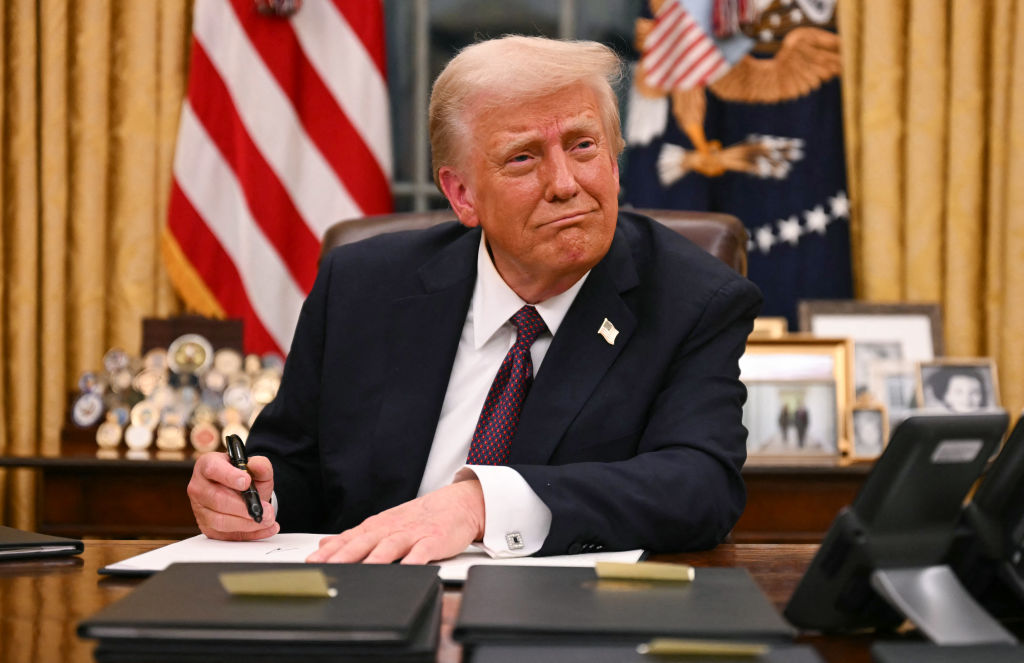Donald Trump’s administration has wasted no time signalling its economic priorities. Just weeks into his second term, the White House issued a remarkable statement on the Consumer Financial Protection Bureau (CFPB) that, at least on the surface, appears to mark a decisive shift away from the economic populism that helped fuel Trump’s return to power.
The CFPB, born from the ashes of the 2008 financial crisis, was designed to be America’s first comprehensive financial watchdog. Now it faces an uncertain future under Trump, with his administration branding the agency a “woke, weaponised arm of the bureaucracy” that “leverages its power against certain industries and individuals disfavoured by so-called ‘elites’.” Despite framing the CFPB in language that will appeal to the MAGA base, this rhetoric masks a straightforward assault on basic consumer protections. For one thing, Trump’s team has targeted the Bureau’s recent decision to ban medical debt from credit reports — a move that would have helped an estimated 15 million Americans by preventing debt collectors from using unpaid hospital bills to wreck their credit scores.
Many of these bills stem from insurance disputes or hospital billing errors rather than financial irresponsibility. Yet Trump’s statement, drawing directly from banking industry complaints and interviews from figures at Right-leaning think tanks such as the Heritage Foundation, characterises this protection as “government overreach” and claims the agency “unilaterally buried $50 billion in medical debt”. Similar logic drives the administration’s opposition to CFPB limits on overdraft fees, which disproportionately impact working-class Americans — precisely the demographic Trump won over during the general election with promises to fight the establishment.
This shift has caught some of Trump’s erstwhile allies off guard. Independent journalist Glenn Greenwald, who has often found himself aligned with the President’s foreign policy positions, expressed surprise at moves to gut the CFPB, noting that it represents “the opposite of the economic populism claimed by MAGA”. In a recent conversation with Greenwald, anti-monopolist writer Matt Stoller placed the CFPB within a broader post-2008 phenomenon that united both Left and Right. “There was a perception across the spectrum,” he said, “that we had gotten to a point where massive financial institutions and corporations had centralised so much power in Washington that ordinary Americans just had no voice any longer.”
So is Trump betraying the economic populists? As ever, it is hard to draw out a clear theme from the President’s first three weeks in office. Alongside his assault on the CFPB, Trump has rolled out proposals aimed at working-class voters, including the elimination of federal taxes on tips, social security payments, and overtime pay — a move that would directly benefit millions of service workers but bleed revenue, unless DOGE cost-cutting measures can offset this. His administration is also pursuing a fairly aggressive stance toward Big Tech through the Federal Trade Commission, with new chair Andrew Ferguson hiring some outspoken industry critics. But as Stoller has warned, the MAGA movement still risks “falling into the trap that Democrats fell into under Obama” by getting “fooled by the Wall Street and Big Tech parts of their coalition into supporting things that are bad for Americans”.
The strategy mirrors Trump’s first-term playbook, when his signature tax cuts benefitted corporations and the wealthy but also delivered enough economic growth — including record-low unemployment and a soaring stock market before Covid hit — to keep his base satisfied. Now he’s betting on repeating the formula. Nevertheless, MAGA diehards such as Steve Bannon have warned about this tendency, viewing Trump’s courting of Elon Musk and his selection of Wall Street veteran Scott Bessent as Treasury Secretary as betrayals of the movement’s populist origins. But Trump, like Ronald Reagan and other Republican presidents before him, appears to be calculating that these decisions can drive enough gains to his base to maintain their loyalty. Now that the President’s campaigning days are over, he will be more unpredictable than ever — even if it comes at the cost of some abandoned campaign promises.











Join the discussion
Join like minded readers that support our journalism by becoming a paid subscriber
To join the discussion in the comments, become a paid subscriber.
Join like minded readers that support our journalism, read unlimited articles and enjoy other subscriber-only benefits.
Subscribe